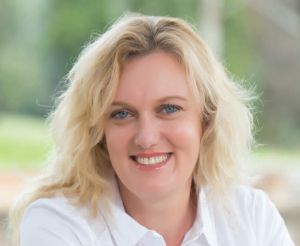
With responsibilities stretching across 900 employees in Australia and New Zealand, Lisa Christy, HR director at tech giant SAP, has plenty on her plate. She refl ects on 15 years in the HR profession, tough decisions, the appeal of IT, and balancing work and personal life
 With responsibilities stretching across 900 employees in Australia and New Zealand, Lisa Christy, HR director at tech giant SAP, has plenty on her plate. She refl ects on 15 years in the HR profession, tough decisions, the appeal of IT, and balancing work and personal life
With responsibilities stretching across 900 employees in Australia and New Zealand, Lisa Christy, HR director at tech giant SAP, has plenty on her plate. She refl ects on 15 years in the HR profession, tough decisions, the appeal of IT, and balancing work and personal lifeHR Director: How did your SAP opportunity arise?
Lisa Christy: I had a call from a recruitment consultant. He had this idea he would one day find the role I really wanted. I was not unhappy at Microsoft, but he called and asked where, if anywhere, I would consider moving to. I said there was only one software company I would ever move to, a role I had coveted for about five years. When he said he had a role at SAP, I said, “Oh, it would be!” Because that was the one company…
I’d had quite a bit to do with SAP HR people over the years, and I had always thought it sounded like a great place to work. I had a lengthy interview process and was eventually interviewed by the acting CEO.
HRD: Were you involved in bringing the new CEO on board?
LC: We were without a CEO for around six months. It was a long hiring time; time for me to settle into the role. While we were hiring I had the opportunity to get up to speed myself, and by the time he was hired I knew who all the key stakeholders were, I knew what the business challenges were and could give him some insights into the business. I built out a plan for him, which encompassed connecting with regional peers, right down to the plan on the ground, working with the GMs – it was onboarding, and getting him up to speed fast.
HRD: Has the HR role changed in your time?
LC: Yes. If I look back 15–20 years, we were in the stage of HR evolving, becoming more strategic. It has taken that time to work that through. Much of the work we do in HR can be operational, and it’s about getting that right so we can add more value to our customers, our managers and employees. But there has been a shift to bringing higher value to the business, working on the business and business planning. We’ve grown, and executives now want much more value from HR.
HRD: What do you think has facilitated this shift?
LC: Technology. Operational work was always very manual – spreadsheets and disparate systems. Now we’re moving to integrated tools that manage everything in the employee life cycle. That can now be pulled out of a dashboard. Managers have access to all the info at their fingertips. That is helping us to push away from the operational and tactical.
HRD: Looking back, what are the hardest decisions you’ve had to make in your career?
LC: Working through restructures and transformations that lead to changes in people’s roles. Any leader would find those the hardest things to work through, but it’s part of business change. I’ve always taken pride in how we handle those situations. Sometimes, depending on the person, it can open their eyes to something new and fresh. Sometimes that change jolts people to make a shift. But they are not the most pleasant situations to work through.
HRD: What do you like about IT?
LC: I like the pace. The people are smart and get very passionate about new ideas and innovation. The important thing for me came about when I was assessing and going through my career and asking: What am I doing? What value am I adding? I had two kids with cancer. I lost my son at four, and my daughter came through it. I was spending a lot of time in hospitals, and my observation was that tech had a big role to play in what the hospital was doing – treatments, research areas and so on. And it was all enabled by technology. That is when it drove home the connection. When it comes down to it, we are helping to save lives, enabling hospitals, doctors and researchers to do things faster and more effectively, to come up with cures.